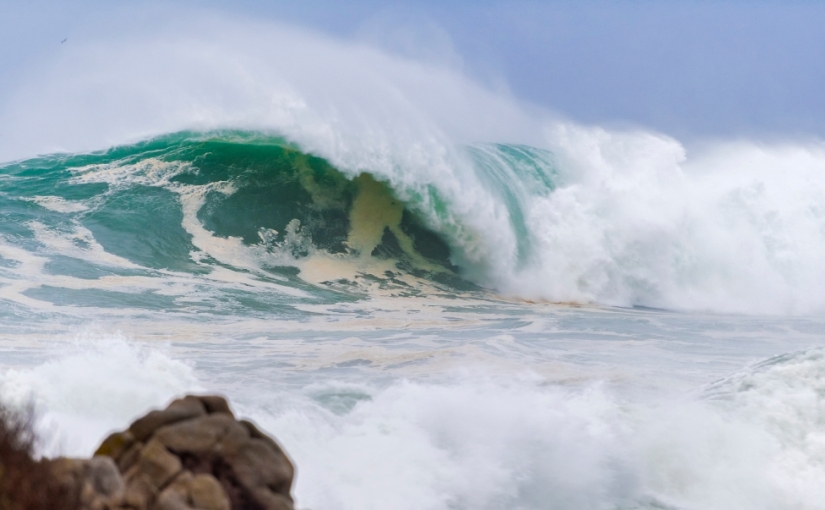
Each year, global leaders gather at the Our Ocean conference, pledging meaningful actions to protect the health of the global ocean. This year, on the Mediterranean island of Malta, Monterey Bay Aquarium was at the heart of several key initiatives addressing fisheries, aquaculture and ocean plastic pollution.
Former U.S. Secretary of State John Kerry, who launched the event in 2014, announced a new partnership between the Aquarium and the Carnegie Endowment for International Peace. Through the Southeast Asia Fisheries and Aquaculture Initiative, we’ll work with regional governments and seafood producers in Thailand, Indonesia, Myanmar, Vietnam and the Philippines to overcome obstacles to sustainable seafood production.
“Sustainable fishing is good for jobs and good for the environment at the same time,” Kerry said. “It’s not a competition between the two.”
Through the initiative, seafood producers, nonprofits and government representatives from the five nations will map a path toward seafood production that is both environmentally and socially sustainable. That’s critical in a region that produces much of the world’s seafood—and that’s home to rich and diverse marine life threatened by unsustainable fishing and aquaculture practices.
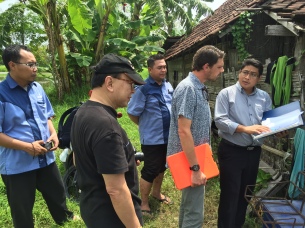
The project combines the knowledge of the countries’ local experts—the people most intimate with conditions on the water—with global advisors to forge solutions. Together, they will address wild fisheries, aquaculture operations and processing industries that supply much of the high-value seafood exported to markets such as the U.S., European Union and Japan. Currently, most of the shrimp farmed in Asia and exported to the U.S. is on the Seafood Watch Avoid list.
“By also examining some of the key commodity species—shrimp, tuna, crab—in some countries in Southeast Asia, I think we can make progress on growing this partnership,” Kerry said during his Our Ocean address, “with government being part of that partnership.”
Aquariums roll back single-use plastic
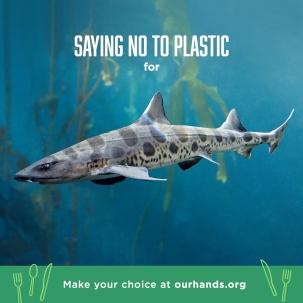
The Aquarium’s work in Southeast Asia is one example of how we can tackle ocean issues through non-partisan, multi-stakeholder cooperation. Another example is our collaboration with aquariums across the U.S. to turn back the tide of ocean plastic pollution.
Through the Aquarium Conservation Partnership, 19 aquariums across the country launched a nationwide campaign this year that encourages the public to cut back in their use of single-use plastic products like disposable cutlery, drinking straws, take-out food containers and coffee-cup lids.
The aquariums also changed their own business practices, cutting out all single-use plastic bags and straws, and pledging to phase out plastic beverage bottles by the end of 2020.
At the Our Ocean Conference, the CEOs of the three aquariums that are leading the ACP—Monterey Bay Aquarium, Shedd Aquarium in Chicago, and National Aquarium in Baltimore—announced the collaborative commitment to shift away from single-use plastic and toward innovative, ocean-friendly alternatives.
A trace of SALT
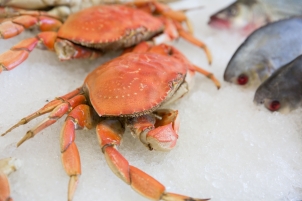
Aquarium Executive Director Julie Packard introduced another notable initiative: the Seafood Alliance for Legality and Traceability (SALT) project. The project will create a collaborative platform to share knowledge about seafood traceability, as a way to strengthen fisheries management and combat illegal, unreported and unregulated (IUU) fishing.
“Efforts to improve transparency and traceability are coming from many different sectors—private sector leaders, NGOs and governments—and the projects are occurring at all scales.” Packard said, “This is why SALT is important. “
SALT will focus on making it easier and more rewarding for individuals across the entire supply chain, from fishermen to processors, to track their products.
The project is backed by the Gordon and Betty Moore Foundation, the David and Lucile Packard Foundation, the Walton Family Foundation, and the United States Agency for International Development (USAID).
Sea change for business
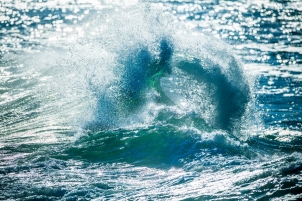
These are just three among hundreds of ocean conservation commitments announced at the fourth annual conference. Plans are already underway for the fifth conference, in Bali, Indonesia in 2019.
In Malta, governments, nonprofits and businesses around the world pledged more than $8 billion to support sustainable fisheries and aquaculture, address the ocean impacts of climate change and stem the flow of plastic pollution from land to sea.
Here at the Aquarium, we’re working on all three fronts—integrating our strengths in science-based conservation research with policy initiatives and markets-based partnerships to make difference for our ocean. We hope you’ll join us.
Learn more about our work to conserve the global ocean.
